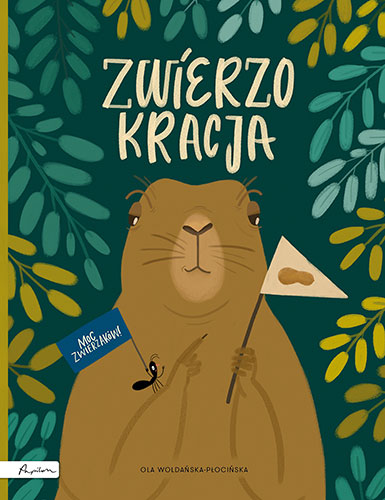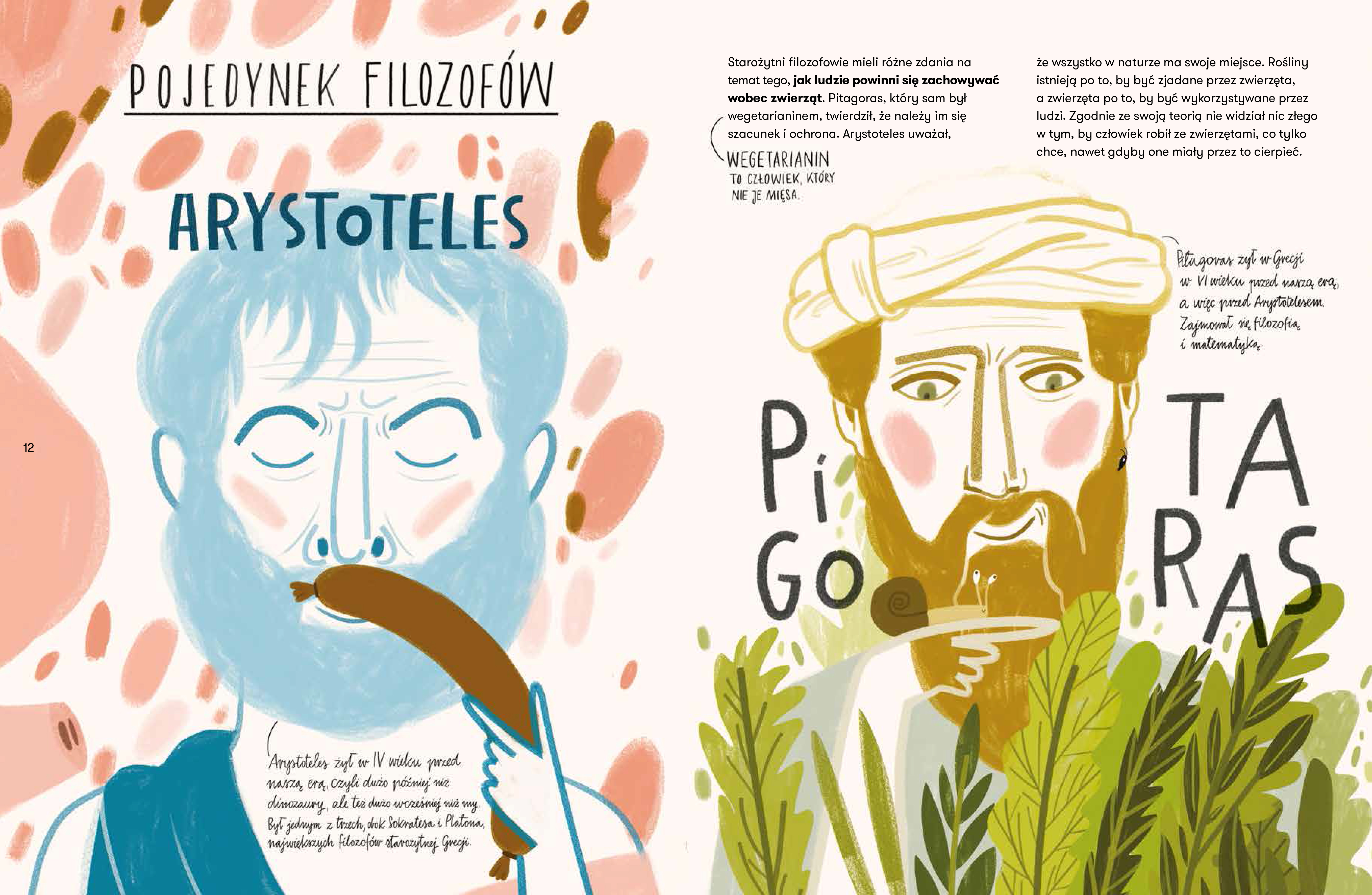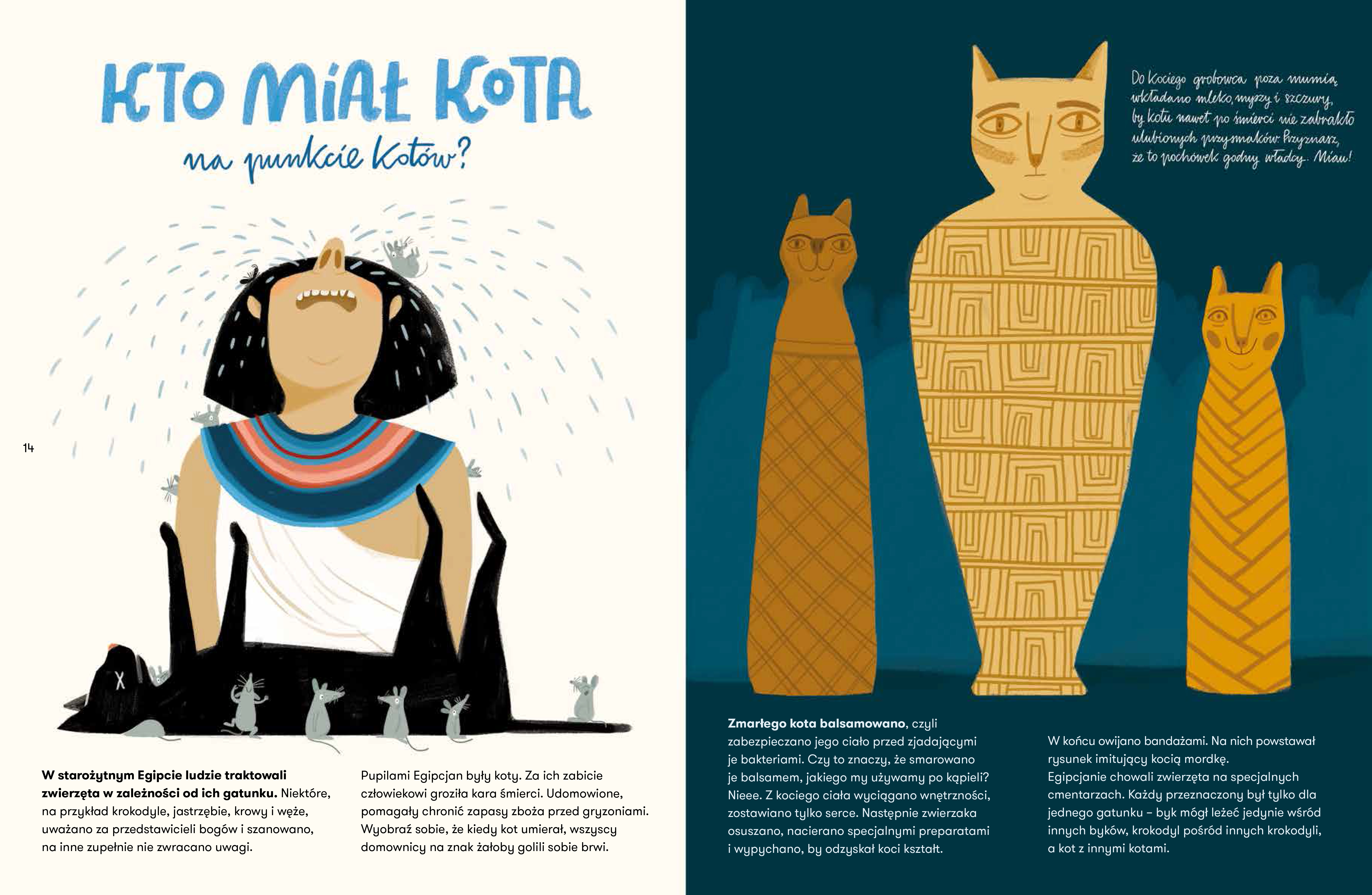Title of the work
Country of the First Edition
Country/countries of popularity
Original Language
First Edition Date
First Edition Details
Ola [Aleksandra] Woldańska-Płocińska, Zwierzokracja. Poznań: Papilon – Publicat, 2018, 80 pp.
ISBN
Genre
Instructional and educational works
Picture books
Target Audience
Children
Cover

Courtesy of the publisher.
Author of the Entry:
Krzysztof Rybak, University of Warsaw, rybak.km@gmail.com
Peer-reviewer of the Entry:
Elżbieta Olechowska, University of Warsaw, elzbieta.olechowska@gmail.com
Elizabeth Hale, University of New England, ehale@une.edu.au

Ola [Aleksandra] Woldańska-Płocińska
, b. 1985
(Author)
Aleksandra Woldańska-Płocińska graduated with a degree in Graphic Design at the University of the Arts in Poznań, Poland, where she currently works as an assistant at the Packaging Design Studio. She is an illustrator and a poster designer as well as an author and designer of books. She has both illustrated books of other authors as well as published several authorial books, including Marchewka z groszkiem [Peas and Carrots], Co dwie brody to nie jedna, kompendium wiedzy o zaroście [Two Beards Are Better Than One: A Compendium of the Knowledge of Facial Hair], and Zwierzokracja [Animalocracy]. She permanently cooperates with the Pinocchio Theatre in Łódz, Silesian company Gryfnie and the portal hellozdrowie.pl. She also received many awards, including the Most Beautiful Book of the Year 2009 (the Polish Society of Book Publishers) as well as distinction: the Polish Society of Book Publishers "The Most Beautiful Book of the Year" 2010 competition and the Polish Section of IBBY "Book of the Year" 2009. More of Woldańska-Płocińska’s work can be seen on her official page, Facebook page and Instagram account (accessed: September 25, 2019).
Bio prepared by Krzysztof Rybak, University of Warsaw, rybak.km@gmail.com
Summary
Zwierzokracja is a large-format non-fiction picture book presenting the history of human-animal relations from prehistory to modern times. Each spread is dedicated to a different topic. Woldańska-Płocińska touches on such issues as hunting, mediaeval animal trials, farming chickens on top of city buildings, intensive animal farming, bird feeding, the Universal Declaration of Animal Rights (1978), endangered species, and veganism. There is even a mention of Jane Goodall, famous primatologist and anthropologist investigating chimpanzees. Among those two spreads are devoted to classical elements. The first is dedicated to the cult of cats in ancient Egypt (pp. 14–15), the second to Greek philosophers’ approach towards eating meat (pp. 12–13).
Analysis
Zwierzokracja tells us that "ancient philosophers had different views on how people should act towards animals" (p. 13). Young readers may read about two philosophers: Aristotle and Pythagoras. Aristotle, who lived in the 4th century BC ("one of the biggest – next to Socrates and Plato – philosophers of ancient Greece", p. 12) said that animals were to be used and eaten by man. That is why Woldańska-Płocińska made a portrait of him smelling a big sausage! The latter, who lived in the 6th century BC was a vegetarian – in the book they are presented not in a chronological order, maybe to underline that vegetarianism has very old tradition and was popularised by one of the less known (at least in children’s culture) ancient philosophers. This part in Zwierzokracja is entitled Pojedynek filozofów [Philosophers’ Duel] and the winner of the duel is clearly indicated by the author. Although Aristotle is chronologically later, it is Pythagoras the vegetarian whose “environmental” views conclude the section and who leaves the young readers with a lasting and animal-friendly message, suitable to the idea of the book. As the book touches serious and important issues in the human-animal relations, its artistic form is colourful, rather comical, and surely attractive, which makes it a great tool to introduce the young reader to ecological aspects of everyday life.
Even though in Woldańska-Płocińska’s book the sources are not mentioned, one may find Pythagoras in many ancient works. Ovid wrote in his Metamorphoses that Pythagoras "was the first man to forbid the use of any animal's flesh as human food" (Ov. Met., 15.72–73, trans. H. Magnus):
"O race of mortals! Do not eat such food!
Give your attention to my serious words;
and, when you next present the slaughtered flesh
of oxen to your palates, know and feel
that you gnaw your fellow tillers of the soil." (Ov. Met.,15. 139–142, trans. H. Magnus)
In Diogenes Laertios’ Life of Pythagoras, we read that "[…] Pythagoras, who forbade even the killing, let alone the eating, of animals which share with us the privilege of having a soul. This was the excuse put forward; but his real reason for forbidding animal diet was to practice people and accustom them to simplicity of life, so that they could live on things easily procurable, spreading their tables with uncooked foods and drinking pure water only, for this was the way to a healthy body and a keen mind." (D. L. 8.13, trans. R.D. Hicks)
On the opposite side was Aristotle who said: "For even at the original coming into existence of the young some kinds of animals bring forth with them at birth enough sustenance to suffice until the offspring can provide for itself, for example all the species that bear their young in the form of larvae or in eggs. The viviparous species have sustenance for their offspring inside themselves for a certain period, the substance called milk. So that clearly we must suppose that nature also provides for them in a similar way when grown up, and that plants exist for the sake of animals and the other animals for the good of man, the domestic species both for his service and for his food, and if not all at all events most of the wild ones for the sake of his food and of his supplies of other kinds, in order that they may furnish him both with clothing and with other appliances. If therefore nature makes nothing without purpose or in vain, it follows that nature has made all the animals for the sake of men." (Aristot. Pol. 1256b 10–22, trans. W.D. Ross).
Both those approaches towards eating meat are presented by Woldańska-Płocińska according to the sources showing that contemporary vegetarian and vegan movements have their roots in ancient times.
Addenda
More on Woldańska-Płocińska’s work (in English), see here (accessed: January 10, 2019).
The illustrations (Courtesy of the publisher):

Aristotle and Pythagoras on eating meat.

Cats in ancient Egypt.


